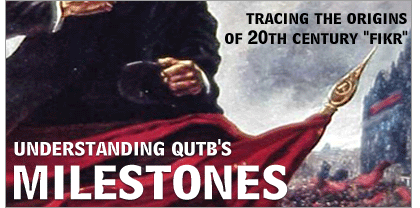
Introduction
Shaykh al-Islam Ibn Taymiyyah said in Majmu' al-Fataawaa (11/265):
وأما إذا أريد بالشرع حكم الحاكم فقد يكون ظالما وقد يكون عادلا وقد يكون صوابا وقد يكون خطأ وقد يراد بالشرع قول أئمة الفقه : كأبي حنيفة والثوري ومالك بن أنس والأوزاعي والليث بن سعد والشافعي وأحمد وإسحاق وداود وغيرهم فهؤلاء أقوالهم يحتج لها بالكتاب والسنة وإذا قلد غيره حيث يجوز ذلك كان جائزا أي ليس اتباع أحدهم واجبا على جميع الأمة كاتباع الرسول صلى الله عليه وسلم ولا يحرم تقليد أحدهم كما يحرم اتباع من يتكلم بغير علم . وأما إن أضاف أحد إلى الشريعة ما ليس منها من أحاديث مفتراة أو تأول النصوص بخلاف مراد الله ونحو ذلك ; فهذا من نوع التبديل فيجب الفرق بين الشرع المنزل والشرع المؤول والشرع المبدل كما يفرق بين الحقيقة الكونية والحقيقة الدينية الأمرية وبين ما يستدل عليها بالكتاب والسنة وبين ما يكتفى فيها بذوق صاحبها ووجده .
 As for when the judgement of a ruler is intended by [the term] al-shar' (the legislation), then he could be oppressive, and he could be just, and he could be correct, or he could be in error. Evidences are sought from the Book and the Sunnah for the statements of ash-Shaafi'ee, Ahmad, Ishaaq, Daawood and others, and when a person blindly follows another person, [in the situation] that is permitted for him, then it is permissible. Meaning, that the following (ittibaa') of one of them is not obligatory upon the whole Ummah just like the following (ittibaa') of the Messenger (sallallaahu alaihi wasallam) (is obligatory upon the whole Ummah). And nor is taqleed of one of them prohibited in the same manner as following (ittibaa') the one who speaks without knowledge (is prohibited). And as for whatever a person ascribes to the Sharee'ah that is not from it, such as the fabricated ahaadeeths, or interpolating (ta'awwul) the texts in a way that opposes the desired intent of Allaah, and other such things, then this is a form of tabdeel (altering, changing). Thus it is obligatory to differentiate between the revealed legislation (ash-shar' al-munazzal), the interpreted legislation (ash-shar' al-mu'awwal) and the altered legislation (ash-shar' al-mubaddal), just as it is to be differentiated between the creational reality and the commanded religious reality and also between that which the Book and the Sunnah give evidence to and that in which (a person's) feelings and impulses are sufficed with.
As for when the judgement of a ruler is intended by [the term] al-shar' (the legislation), then he could be oppressive, and he could be just, and he could be correct, or he could be in error. Evidences are sought from the Book and the Sunnah for the statements of ash-Shaafi'ee, Ahmad, Ishaaq, Daawood and others, and when a person blindly follows another person, [in the situation] that is permitted for him, then it is permissible. Meaning, that the following (ittibaa') of one of them is not obligatory upon the whole Ummah just like the following (ittibaa') of the Messenger (sallallaahu alaihi wasallam) (is obligatory upon the whole Ummah). And nor is taqleed of one of them prohibited in the same manner as following (ittibaa') the one who speaks without knowledge (is prohibited). And as for whatever a person ascribes to the Sharee'ah that is not from it, such as the fabricated ahaadeeths, or interpolating (ta'awwul) the texts in a way that opposes the desired intent of Allaah, and other such things, then this is a form of tabdeel (altering, changing). Thus it is obligatory to differentiate between the revealed legislation (ash-shar' al-munazzal), the interpreted legislation (ash-shar' al-mu'awwal) and the altered legislation (ash-shar' al-mubaddal), just as it is to be differentiated between the creational reality and the commanded religious reality and also between that which the Book and the Sunnah give evidence to and that in which (a person's) feelings and impulses are sufficed with.
Comments
In this statement it is clear that Ibn Taymiyyah is differentiating between what is the actual revealed legislation (al-shar' al-munazzal) and between the views and opinions of the scholars and jurists based upon the revealed legislation but which are their interpretations, and the altered religion (al-shar' al-mubaddal) which is whatever is ascribed to the religion but is not from it, and the prominent example of that is the fabricated ahaadeeth.
Thus, tabdeel is to ascribe something to the religion that which is not from it, and this applies across the board in all affairs of the religion (as we shall see from further quotes), in beliefs, in worship, in dealings, and in rulings. And this is why it is said about previous religions in that they were "alterered" (mubaddal) and those alterations being taken as the deen with Allaah, the Exalted, when Allaah gave no authority for those matters. And Ibn Taymiyyah wrote a work in refutation of the Christians who altered the religion of the Messiah, Jesus, and it is named, (الجواب الصحيح لمن بدل دين المسبح), The Correct Reply to the One Who Altered the Religion of the Messiah, and there is no doubt that what the Christians innovated was treated by them as being from the religion brought by Christ from his Lord.




 As for when the judgement of a ruler is intended by [the term] al-shar' (the legislation), then he could be oppressive, and he could be just, and he could be correct, or he could be in error. Evidences are sought from the Book and the Sunnah for the statements of ash-Shaafi'ee, Ahmad, Ishaaq, Daawood and others, and when a person blindly follows another person, [in the situation] that is permitted for him, then it is permissible. Meaning, that the following (ittibaa') of one of them is not obligatory upon the whole Ummah just like the following (ittibaa') of the Messenger (sallallaahu alaihi wasallam) (is obligatory upon the whole Ummah). And nor is taqleed of one of them prohibited in the same manner as following (ittibaa') the one who speaks without knowledge (is prohibited). And as for whatever a person ascribes to the Sharee'ah that is not from it, such as the fabricated ahaadeeths, or interpolating (ta'awwul) the texts in a way that opposes the desired intent of Allaah, and other such things, then this is a form of
As for when the judgement of a ruler is intended by [the term] al-shar' (the legislation), then he could be oppressive, and he could be just, and he could be correct, or he could be in error. Evidences are sought from the Book and the Sunnah for the statements of ash-Shaafi'ee, Ahmad, Ishaaq, Daawood and others, and when a person blindly follows another person, [in the situation] that is permitted for him, then it is permissible. Meaning, that the following (ittibaa') of one of them is not obligatory upon the whole Ummah just like the following (ittibaa') of the Messenger (sallallaahu alaihi wasallam) (is obligatory upon the whole Ummah). And nor is taqleed of one of them prohibited in the same manner as following (ittibaa') the one who speaks without knowledge (is prohibited). And as for whatever a person ascribes to the Sharee'ah that is not from it, such as the fabricated ahaadeeths, or interpolating (ta'awwul) the texts in a way that opposes the desired intent of Allaah, and other such things, then this is a form of